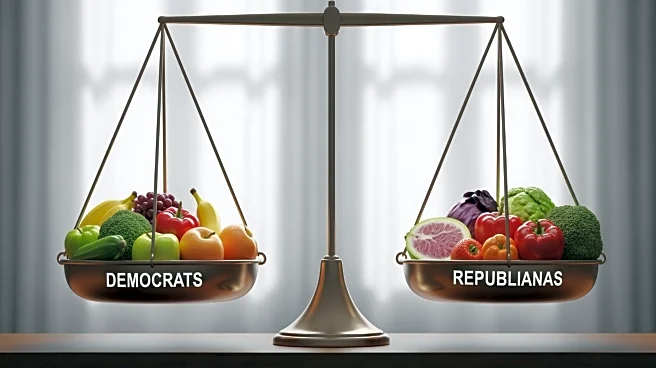What's Happening?
A contentious debate has emerged between Democrats and Republicans over the funding of the Supplemental Nutrition Assistance Program (SNAP) during the ongoing federal government shutdown. Republicans claim
that SNAP funding will run out on November 1 due to the shutdown, while Democrats argue that a contingency fund exists to continue benefits. The U.S. Department of Agriculture (USDA), which administers SNAP, has stated it cannot legally use the contingency fund for regular benefits, a position that has shifted from previous administrations. This has led to a legal and political standoff, with Democrats accusing the Trump administration of using SNAP funding as leverage in the shutdown negotiations.
Why It's Important?
The dispute over SNAP funding highlights the broader implications of the government shutdown on social welfare programs. SNAP benefits are crucial for nearly 42 million Americans, including vulnerable populations such as children and low-income families. The inability to access these benefits could lead to increased food insecurity and economic hardship. The political stalemate also underscores the challenges in reaching bipartisan agreements on budgetary issues, which can have far-reaching effects on public policy and social services. The outcome of this dispute could set a precedent for how contingency funds are utilized during future government shutdowns.
What's Next?
The legal battle over SNAP funding is likely to continue, with potential court rulings influencing the administration's ability to use contingency funds. Meanwhile, political negotiations may intensify as both parties seek to resolve the shutdown and restore funding to essential programs. The situation could prompt legislative action to ensure the continuity of SNAP benefits during future shutdowns, potentially leading to new policies or amendments to existing laws.









